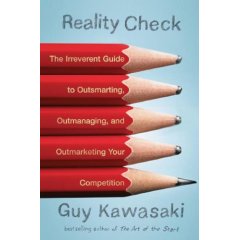About two weeks ago I had the privilege of speaking at a conference in San Francisco that was attended by doctors, nurses, hospital administrators, and parents for at least 30 hospitals who were working together to improve the quality of care in Neonatal Intensive Care Units (NICU's). It was organized by the Vermont Oxford Network, a " Non-profit voluntary collaboration concerned with medical care for newborn infants and their families." Dr. Jeff Horbar, the CEO of the network, invited me to speak about evidence-based management to the group, and then to lead an interactive "d.school style" session.
This second part knocked my socks off. The 250 or so participants sat at round tables, organized by hospital, and most had a doctor or two, some nurses, an administrator or two (including a few CEOs), and parent who an infant that had been in the NICU. The groups focused on the parent's experience in the NICU, first identifying a list of difficulties with the experience and then brainstorming was to solve one or of these problems, and finally, discussing ways to implement their solutions. The degree to which everyone in the room was open, and non-defensive about their challenges, and their willingness to take action, and their pure enthusiasm was something to behold. It was lesson in the power of trust, energy, and the willingness to act.
More generally, although I realize that the U.S. health care systems is a mess in many ways, after seeing these wonderful people in action, and writing the article about the IHI campaign that saved 100,000 lives in U.S. hospitals, I am getting quite optimistic that there is hope for improving the system, and more generally, hope that some of the most difficult problems that we face in this country — and throughout the world — can be solved by determined, open, and action-oriented people.
He also cited some more general research showing that diagnostic error occurs in 10 to 25 percent cases in medicine in general, and estimated that occurs about 20% of the time in the NICU. He went through many causes of these errors, but one I found especially interesting (in light of our emphasis on parents earlier in the morning) was research cited in Jerome Groopman's How Doctors Think, which discussed how badly doctors interact with and listen to patients — including one study that found that the average doctor only waits 18 SECONDS before interrupting a patient who has begin to describe his or her symptoms.
Dr. Guiliano ended with a list of his 10 Commandments for Minimizing Error. As you can see, one of his main themes is not just put all the trust and power in the doctor's hands, especially a single doctor, and to involve give everyone who comes in the NICU both a voice in the process and the responsibility to contribute tot he diagnosis (and its correction).
1. I shall not believe everything I hear from the
doctor
2. I shall first listen
to the patient
3. I shall not
fall in love with my first diagnosis
4. I shall not
believe everything I hear about test results
5. I shall explain
everything to everyone
6. I shall involve the patient in everything.
7. I shall communicate
with peers precisely
8. I shall take
personal responsibility for the patient’s clinical problem
9. I shall not
believe everything the consults say.
10. I shall say “I DON’T KNOW” regularly and go get the answer
Brilliant stuff, isn't it? And it is backed by a growing body of research in both evidence-based medicine and evidence-based management. As I suspect you have already been thinking, these ideas apply beyond far beyond medicine – I believe that (with only slight modification for the context) that they apply to any complex decision where there is uncertainty, people
with different levels of power, different information, clashing self-interest, and severe
pressure to get things right.


